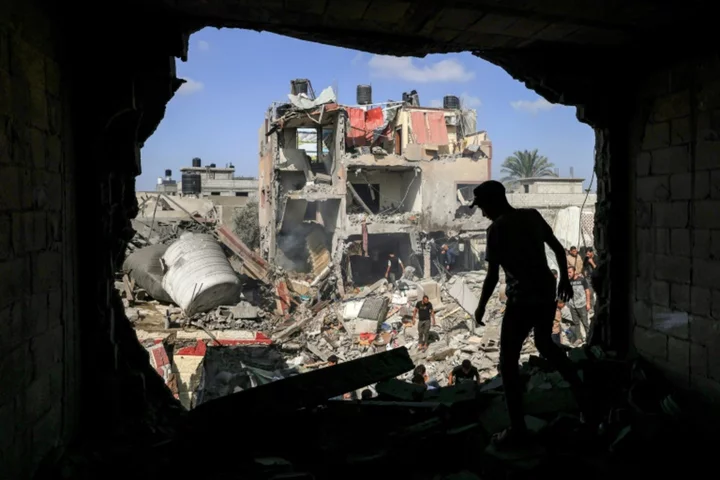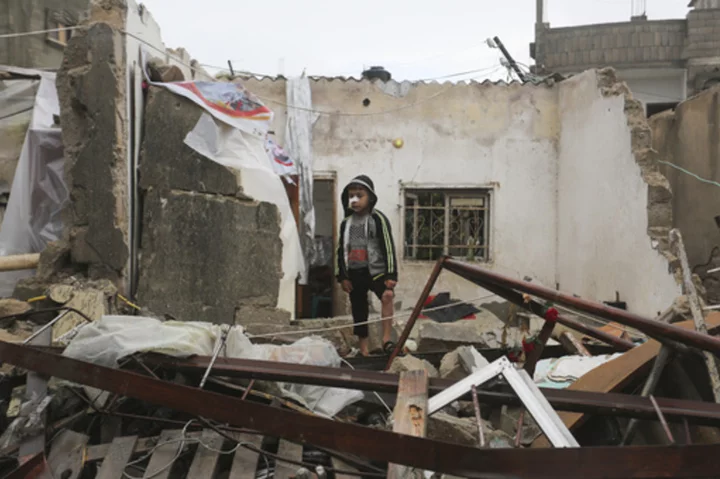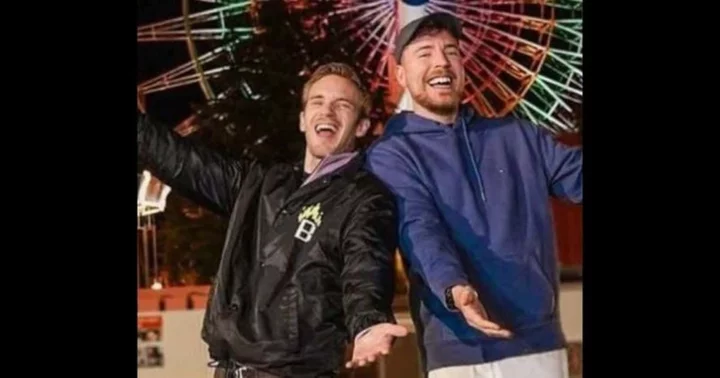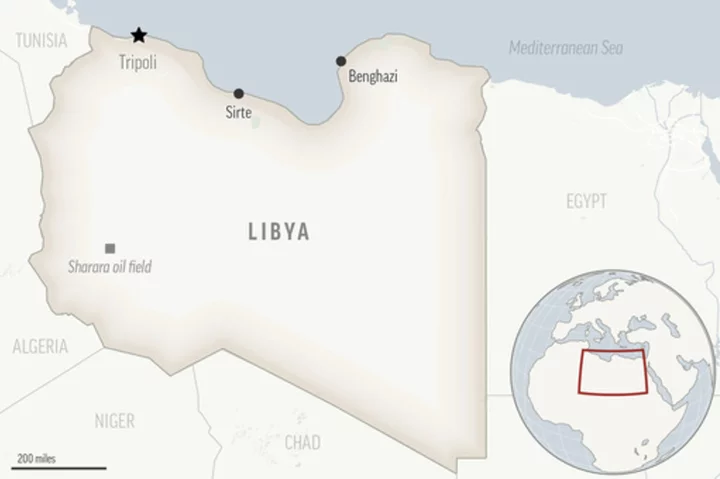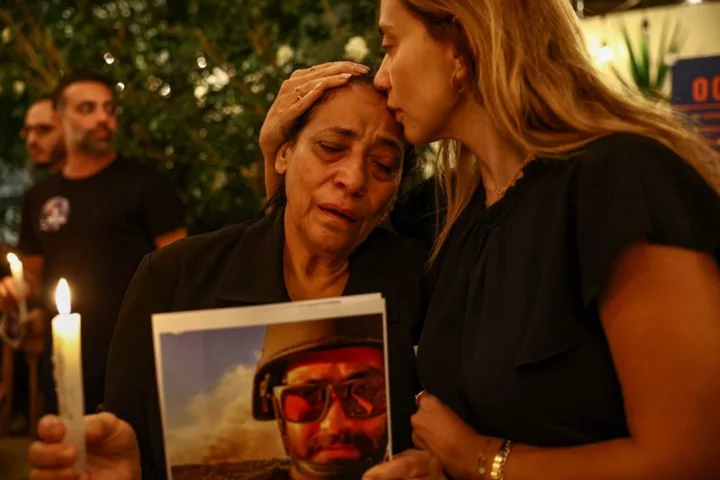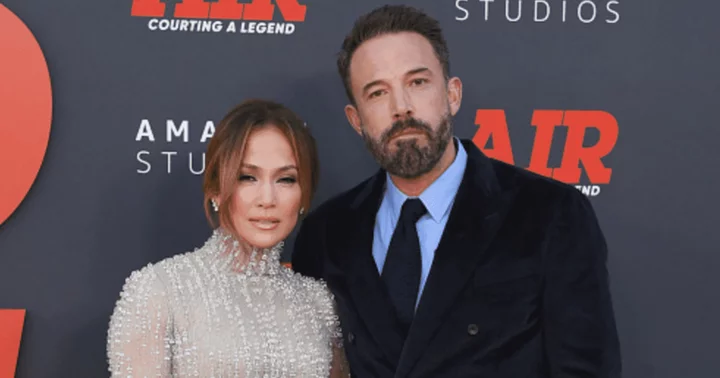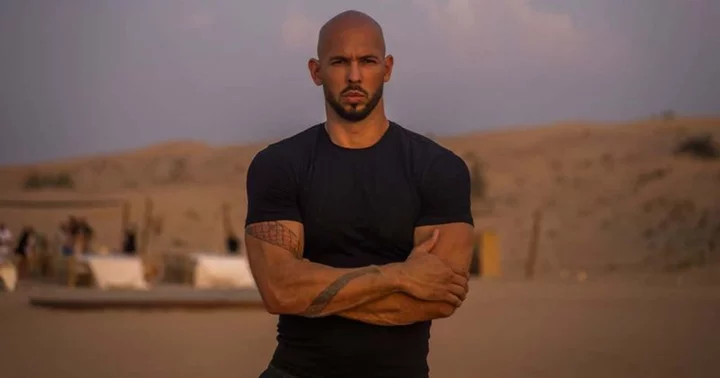France hosted a conference Thursday on humanitarian aid for Gaza calling for a "humanitarian pause" so countries can "work towards a ceasefire", as the Palestinian territory remained under bombardment by Israel following Hamas' October attack.
"In the immediate term, we need to work on protecting civilians. To do that, we need a humanitarian pause very quickly and we must work towards a ceasefire," President Emmanuel Macron told delegates in Paris.
Israel has stayed away from the talks on aid for civilians in the enclave of 2.4 million people, where the Hamas-run health ministry said Thursday Israel's military campaign has killed more than 10,800 people, many of them children, and wounded almost 27,000 more.
Hamas militants stormed across the border from Gaza into Israel on October 7, killing more than 1,400 people, mostly civilians, and taking some 240 hostages, Israeli officials say.
Vowing to destroy Hamas, Israel retaliated with a massive, relentless bombardment and ground invasion.
Tens of thousands of civilians have fled towards the south of the Gaza Strip.
But Moshe Tetro, an Israeli military officer handling civil affairs in Gaza, said on Thursday that while "the civil situation in the Gaza Strip is not an easy one", the state sees "no humanitarian crisis".
Israeli Prime Minister Benjamin Netanyahu on Wednesday reiterated that "there will be no ceasefire without the release of our hostages".
As the fighting continues, the humanitarian situation "is worsening more and more each day," Macron said.
Thursday's aid conference was put together in a hurry on the sidelines of the annual Paris Peace Forum on November 10-11.
Although representatives from many European countries, Egypt and the Palestinian Authority and a slew of aid groups joined, no heads of government from the Arab world attended.
- 'Violations' -
Egypt's Foreign Minister Sameh Shoukry accused Israel of "violations of international humanitarian law".
"How many Palestinians must die for this war to stop? Is it enough to kill six children and four women every hour?" Palestinian Authority Prime Minister Mohammad Shtayyeh asked delegates, urging them to "end the double standard" he said existed between Palestinian and Israeli casualties.
The UN estimates that $1.2 billion in aid will be needed for the populations of Gaza and the West Bank from now until the end of the year.
France's foreign ministry said the Paris talks would include sections on donations of goods such as food, fuel and medical supplies, financial support and humanitarian access.
But any promises of aid risk ringing hollow while supplies are being held up at the Gazan border.
"We're going to ask that aid enter Gaza because for now it's just a few trucks each day," Philippe Lazzarini, head of the United Nations' Palestinian refugee agency UNRWA, told broadcaster France Inter early on Thursday.
The world body itself has "never registered so many deaths in such a short time in a conflict" among its staff, he said.
International concern over the fate of Gaza's civilians, most of whom cannot flee the sealed-off territory, has strengthened calls for humanitarian "pauses" or a full ceasefire.
Both European and US leaders are "having difficulty convincing (Israel) that there should be humanitarian pauses as soon as possible", European Council head Charles Michel told broadcaster France 2 early on Thursday.
"We don't know what 'humanitarian pauses' would really mean," said Isabelle Dufourny, president of the French section of Doctors Without Borders (MSF). "If we only get one or two days of truce, it's not enough. We can't set up medical aid on a battlefield," she added.
Independent UN expert Balakrishnan Rajagopal said on Wednesday that Israel's widespread and systematic bombardment of housing and civilian infrastructure in Gaza was a "war crime", as were indiscriminate Hamas rocket attacks that hit Israeli dwellings.
Israel has for now remained firm in keeping up its offensive, with the stated objective of destroying Hamas -- which has governed Gaza since 2007.
burs-dla-tgb/jh/gw

